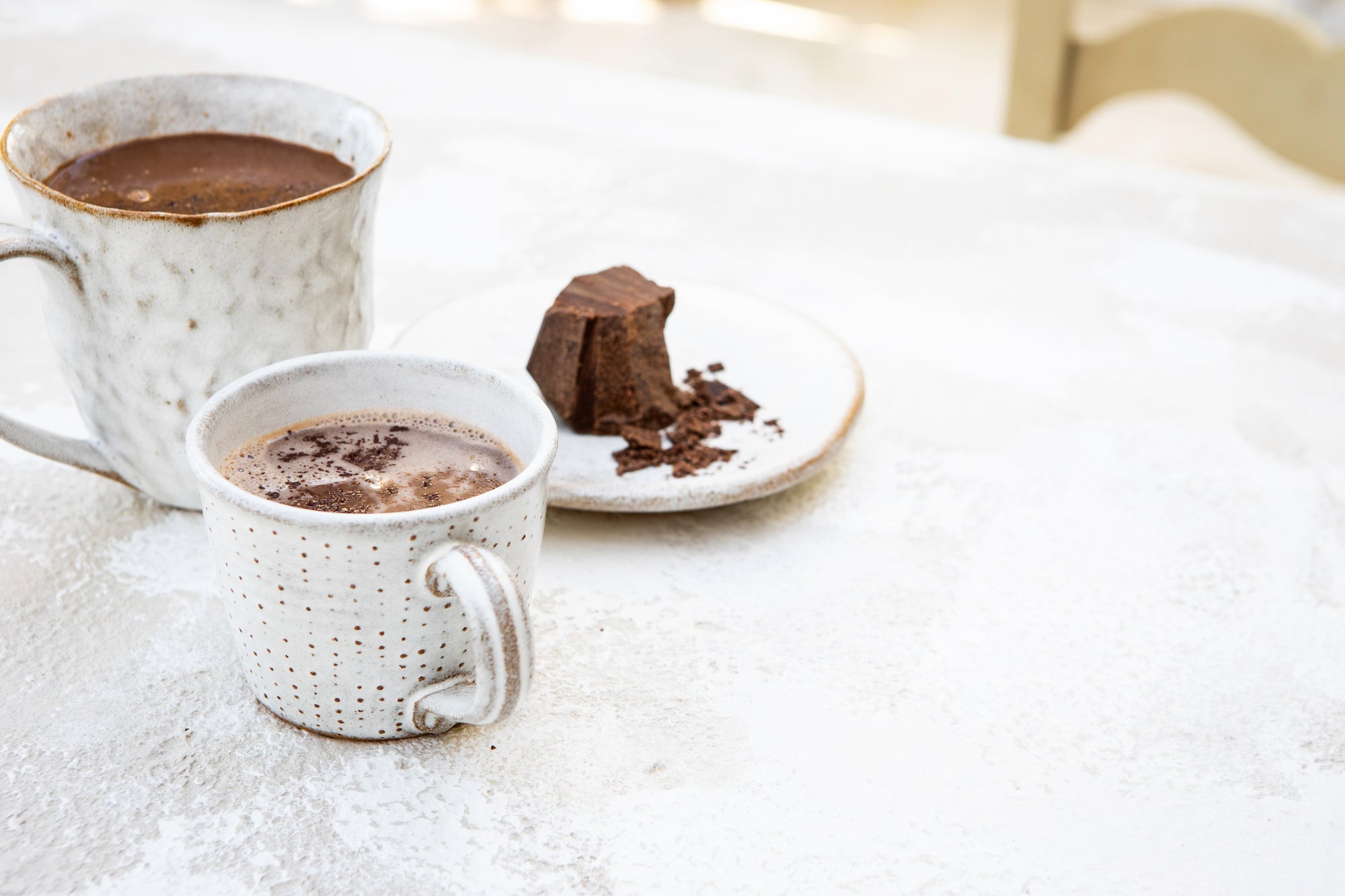
Collagen and Fertility
5 Min read
Charlotte Grand is a registered Nutritional Therapist, fertility nutrition expert and creator of the popular Instagram channel @thefertilitykitchen where she shares her wholesome balanced approach alongside deliciously simple, everyday recipes. Charlotte has spent almost ten years specialising in preconception and fertility, and in her private practice supports her clients to transform their health in preparation for conception and pregnancy. If you are interested in reading her fascinating book, you can find it here.
Amino acids are the building blocks of protein. Twenty amino acids are used to build the proteins in your body, nine of which are considered essential. You must get these nine from food as your body can’t make them, whereas it can make the other eleven. Six of these eleven are considered conditionally essential, meaning their synthesis can be limited under certain conditions and you would need to get it from your diet.
Glycine is a conditionally essential amino acid that becomes essential in pregnancy. It is a structural amino acid required for foetal DNA and collagen synthesis and it also helps the mother’s body grow and adapt to pregnancy. The bones, skin and connective tissue of animals are rich in protein, gelatine, collagen, glycine and minerals. Collagen and gelatine are rich sources of glycine, and the most reliable food sources include bone broth, slow-cooked meat and skin-on, bone-in poultry. These foods offer a source of nutrients that can otherwise be lacking in our diets. However, many people simply don’t eat these types of foods anymore or they don’t eat enough. Although the body can make its own collagen, after the age of 30, production starts to decline.
Collagen powder can therefore be a useful addition to your diet when trying to conceive or pregnant to support intake of glycine, as well as seventeen other amino acids. The benefits don’t stop there. Collagen is also a key protein within the gut lining. Optimal gut health is vital for absorbing nutrients from your food, which in turn are essential for supporting fertility and a healthy pregnancy. If you’re not digesting and absorbing well, it really doesn’t matter how healthy your diet is – it’s unlikely that you’ll be getting the nutrients required to fully support your fertility.

Your digestive tract is separated from your bloodstream by a thin border made of mucosal cells. These cells are tightly packed together to form a protective barrier between the outside world and inside your body, regulating what’s allowed in and out. In order to pass through this barrier, your food must be fully digested into tiny particles.
Increased intestinal permeability (leaky gut) occurs when the tight junctions between these border cells become loose, allowing incompletely digested food molecules, pathogens and waste products to enter the bloodstream. Leaky gut can happen in response to chronic stress, a poor-quality diet, undigested food particles, imbalanced gut bacteria (dysbiosis), infections, environmental toxins and medications, such as non-steroidal anti-inflammatory drugs (NSAIDs).
Since about 70 per cent of your body’s immune system is housed in the gut, when larger food molecules and other particles enter the bloodstream, they trigger an inflammatory response. Inflammation is meant to be a short-lived, protective process but becomes an issue when it is chronic and unresolved. Modern living contributes to a state of chronic inflammation as our bodies are constantly dealing with a poor diet and stressful lifestyle. Chronic Inflammation has been linked to insulin resistance, ovarian dysfunction and polycystic ovarian syndrome (PCOS), poor egg quality and impaired ovulation, endometriosis and recurrent miscarriage.
In The Fertility Kitchen, I cover gut health in detail, explaining how to recognise if you have an issue in this area and steps you can take to support yourself. Optimising gut health takes time and commitment but can be transformative. I share a five-step process to help restore balance. One of those steps is ‘repair’ and is focused on including foods rich in nutrients that help restore the gut lining, such as vitamins A, C and D, omega-3 fatty acids, l-glutamine and collagen, to optimise nutrient absorption and immune tolerance and calm inflammation.
Collagen is beneficial because it provides structure and contributes to the integrity of the gut lining. Hydrolysed collagen is my preferred type of collagen powder because the collagen peptides have already been broken down, enhancing its ability to be absorbed and used by the body. This is one of the reasons I love Ancient + Brave True Collagen Powder and recommend it in The Fertility Kitchen. Because it is odourless, tasteless and water-soluble, you can easily add it to hot drinks, smoothies, stocks and soups. I love adding it to the anti-inflammatory golden milk and adaptogenic cinnamon-chai hot chocolate recipes from The Fertility Kitchen.

Anti-inflammatory golden milk
Make this deliciously warming golden milk part of your evening ritual. The ultimate soothing drink.

SERVES 1
125ml (½ cup) cashew milk
125ml (½ cup) oat milk
1 serving Ancient + Brave True Collagen Powder
½ tsp ground turmeric
¼ tsp ground cinnamon
Pinch of ground ginger
Pinch of ground cardamom
1 tsp manuka honey
Place the milks, collagen powder, spices and honey in a blender and blend until smooth and creamy. Pour into a small saucepan set over a low heat for 4–5 minutes, or until warmed through.
Adaptogenic cinnamon-chai hot chocolate
This hot chocolate is deliciously creamy. With the addition of ashwagandha to aid inner calm and sleep, it’s the perfect after-dinner treat.

SERVES 1
250ml (1 cup) oat milk
2 scoops Ancient + Brave Cacao + Collagen
1 tsp gelatinised maca root powder, sifted
½ tsp chai spices, sifted
½ tsp ground cinnamon, sifted
½ tsp manuka honey (optional)
1 tsp light (hulled) tahini
1 tsp finely grated ceremonial grade cacao or dark chocolate (90% cocoa solids)
- Place the oat milk, cacao + collagen, maca powder, chai spices, cinnamon, honey (if using) and tahini in a blender and blend until completely smooth.
- Transfer to a saucepan, place over a low heat and simmer for 4–5 minutes, or until warmed through. Pour into a mug and sprinkle with the grated cacao to serve.
